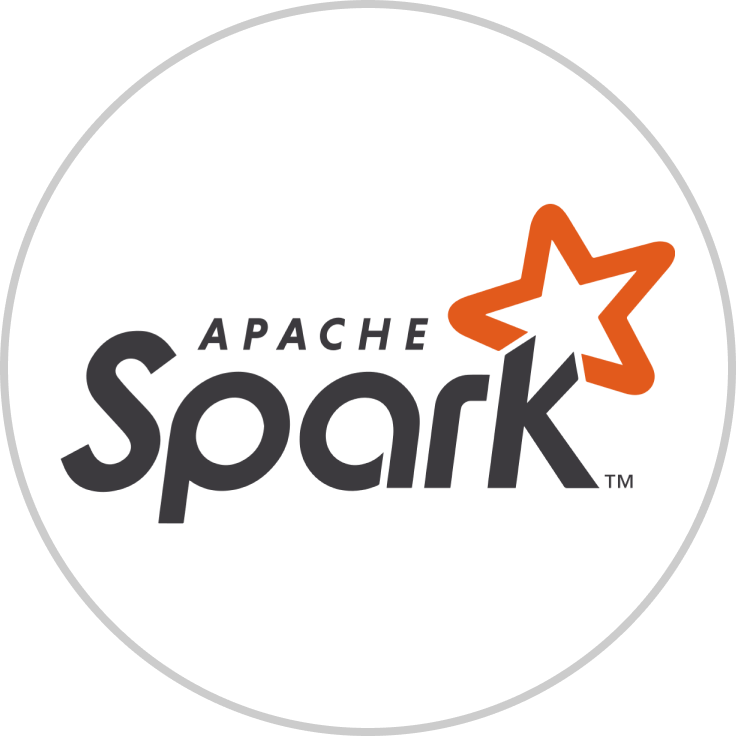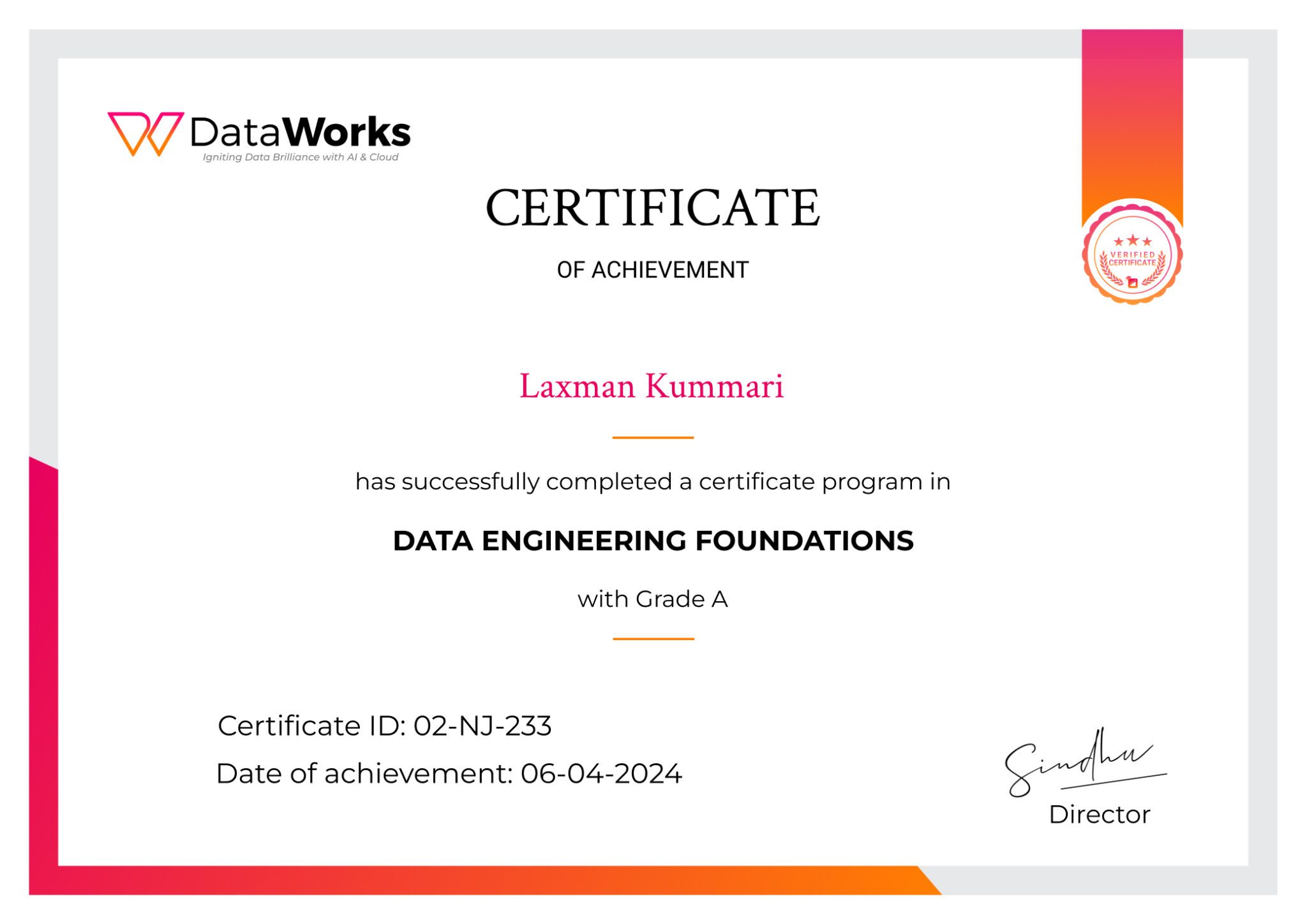Data Engineering Foundations
Data Engineering Foundations by DataWorks is an introductory course designed to dive deep into the world of data engineering, a critical field that focuses on the collection, storage, processing, and analysis of data at scale. This course offers a comprehensive overview of the essential concepts, tools, and technologies used by data engineers, including databases, data warehousing, ETL (Extract, Transform, Load) processes, data modeling, and big data technologies. Through a combination of lectures, hands-on labs, and project work, participants will learn how to design, build, and manage data pipelines that can handle complex data flows and support data analytics and machine learning applications.
4.8 (140 Ratings)
Course info
Fundamental principles of data engineering and the role of data engineers.
Working with relational and NoSQL databases for data storage and retrieval.
Designing and implementing ETL processes and data pipelines.
Basics of data warehousing and data lakes, and when to use each.
Introduction to big data technologies such as Hadoop and Spark.
Best practices for data quality, data governance, and data security.
Course Content
Role of Data Engineers: Responsibilities and impact in the industry.
Key Concepts in Data Engineering: Introduction to core concepts like data pipelines, data warehousing, and ETL processes.
Data Engineering Tools: Overview of commonly used tools and technologies.
Database Types: Overview of relational (SQL) and non-relational (NoSQL) databases.
SQL Fundamentals: Key SQL operations, querying databases.
Data Warehousing Concepts: Introduction to data warehousing and its importance.
Data Cleaning Techniques: Identifying and correcting errors in data.
Data Transformation: Converting data from one format or structure into another.
Batch and Stream Processing: Understanding the differences and applications.
Hadoop Ecosystem: Introduction to Hadoop and its components.
Apache Spark: Deep dive into Spark capabilities, RDDs, and Data Frames.
Distributed Computing Basics: Principles of distributed computing in big data.
ETL Process Design: Designing efficient ETL (Extract, Transform, Load) processes.
Data Integration Techniques: Strategies for combining data from different sources.
Pipeline Automation: Automating data pipeline processes.
Cloud Data Services Overview: AWS, Azure, and GCP data services.
Cloud Storage Solutions: Different cloud storage options and their use cases.
Cloud-Based Data Processing: Leveraging cloud for data processing tasks.
Data Privacy Principles: Understanding data privacy and protection laws.
Security Measures in Data Engineering: Techniques for securing data pipelines and storage.
Data Governance Frameworks: Implementing data governance and compliance policies.

-
LevelIntermediate
-
Total Enrolled3
-
Duration15 hours 20 minutes
-
Last UpdatedAugust 21, 2024
Upskill for your Dream Job

Hiring Partners





Basic understanding of programming concepts (Python is recommended but not mandatory).
Familiarity with fundamental concepts of databases and SQL.
A willingness to learn complex technical topics and solve problems.
Access to a computer with internet connectivity for hands-on exercises and projects.
FAQ's
The course is designed to be completed in 8 weeks with a commitment of 5-10 hours per week.
Basic requirements include a computer with internet access. Specific software installations (all free or open-source) will be guided through the course.
Yes, participants will work on hands-on projects throughout the course to apply what they've learned in real-world scenarios.
Yes, participants who successfully complete the course and all assessments will receive a Data Engineering Foundations certificate from DataWorks.
The course is designed with flexibility in mind to accommodate working professionals. However, keeping pace with the scheduled modules is recommended for the best learning experience.
Earning Potential
5 LPA
min
9 LPA
avg
15 LPA
max
Data Engineering Foundations Tools Covered

Python

SQL

Apache Hadoop

Apache Spark

Talend

Informatica
Let’s explore further the implications of transitioning to online training
Course Certificate
The Cyber Security Practitioner Programming Course Certificate focuses on enhancing coding skills for securing applications and systems. The curriculum covers topics like secure coding practices, ethical hacking, and defensive programming. It’s ideal for developers and security professionals aiming to bolster their cybersecurity expertise.

Course Reviews

Vihaan.A

Aarav.G

Arjun.H

